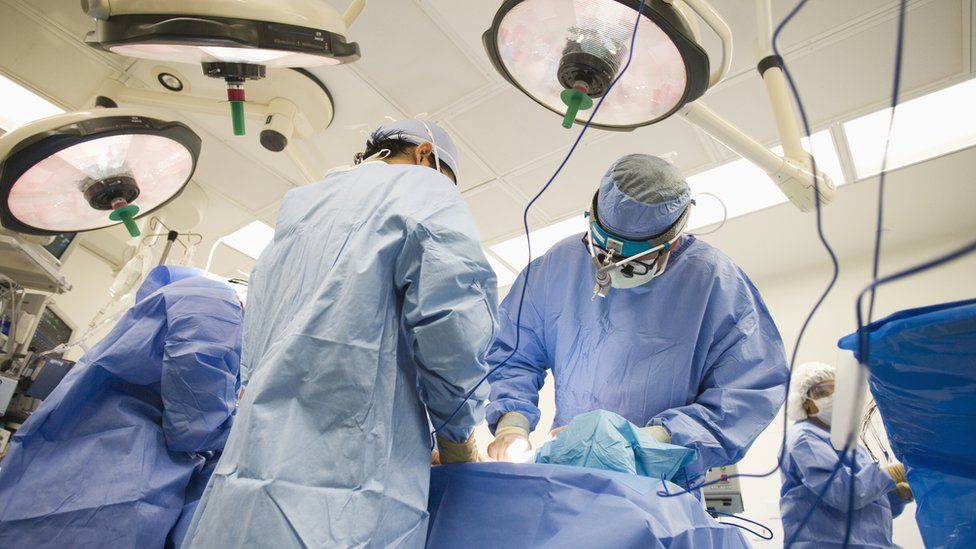Hospital waiting lists hit six million in England
- Published

The number of people on a hospital waiting list in England has hit six million for the first time.
And about one in 20 of those has been waiting - for routine care such as knee and hip surgery - for more than a year.
The figures are for the end of November - before the Omicron variant of the Covid-19 virus hit the country.
Also, in December, nearly 27% of patients arriving at an emergency department waited more than four hours to be seen - another record high.
Patients needing a bed on a ward also faced record delays.
More than 120,000 - almost one in three of those admitted - spent more than four hours waiting for a bed.
And nearly 13,000 waited more than 12 hours - another high since records began, in 2010.
Demand for ambulances was also high, with crews struggling to reach patients on time.
On average, it took more than nine minutes to reach an immediately life-threatening callout in December - the target is seven.
For emergencies such as strokes and heart attacks, it took more than 53 minutes on average - it is meant to take less than 18.
Both figures, however, showed slight improvements on the performance in October.
'I had heart-attack scare but made own way to A&E'
When Fraser Farndon, from Greater Manchester, had a heart attack in 2016, he was on the operating table within an hour.
But this year, when he called for an ambulance, with the same symptoms, on New Year's Day, the father of two, was told it would be a two-hour wait.
In the end, his father-in-law took him to the Royal Oldham Hospital.
"I have never seen it so busy in A&E, over 100 people and it was over a seven-hour wait," Mr Farndon, 37, said.
He was finally given the all-clear nine hours after first contacting emergency services.
Patricia Marquis, of the Royal College of Nursing, said the NHS was clearly "struggling to treat patients safely".
NHS medical director Prof Stephen Powis said the Omicron variant, first identified in South Africa, was putting huge pressures on hospitals, not just because of the numbers of patients being admitted - about 2,000 a day on average - but also because of staff absences.
But he added: "Despite this, once again, NHS staff pulled out all the stops to keep services going for patients."
- Published7 January 2022
- Published5 July 2023
